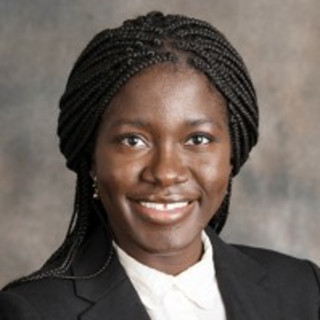It was the wee hours of the morning when one of my patients in the ICU had become severely hypotensive, requiring invasive monitoring. He needed a central line to be placed, and I was both excited and nervous as my senior guided me through the steps of the procedure. This was my first 24-hour call as a new resident, at the end of a week already filled with long hours. The night continued to be busy, with new admissions and unrelenting alarms from my belt of pagers. I did not realize how exhausted I was until I got home and the running adrenaline dissipated. I easily slept through my entire post-call day.
Nights like this would be many, and I entered residency expecting this. I came into residency with the desire to work hard and to be rigorously trained. I have heard many fellow residents express similar sentiments, with a desire to be pushed in a way that will challenge them and help them grow into excellent doctors. In the long days and tough nights, I have gained the invaluable operative and critical care skills necessary to become a skilled surgeon. Yet as much as growth and comfort do not exist in the same space, one does not need to be broken first in order to be built up. Just as it is important for residents to have an attitude of resilience, it is also equally important that residency programs have an attitude of responsiveness to the nature of the resident training experience.
The traditional model of residency expected that training doctors be responsible for patients 24 hours a day, for seven days a week. In 1980-1981, the ACGME began to recognize that a balance was needed between education of residents, service demands, and personal pursuits. By 1988, the ACGME task force had set limits with on-call shifts to not be more frequent than every third night and for residents to receive one out of seven days away from the hospital. After being first proposed in 1989, the current 80-hour cap across all medical specialties was established by the ACGME in 2003. Since then, there have been many discussions about the utility of 24-hour call shifts, the effect of sleep deprivation among residents, and the physical and emotional toll of burnout on residents and, ultimately, patients. Residents have noted how excessive service hours cut into time for other areas of valuable growth, from education, to personal physical and mental health care, to the ability to birth and rear children. In expressing these concerns, there have been some senior doctors who have responded by advocating for older models of training, where there was seemingly a pride in enduring unrelenting work conditions. In these comments, they fail to see that they persisted and became good doctors not purely because of the old system but rather in spite of the detrimental effects. And the high prevalence of burnout and depression within medicine shows that each generation has reaped the consequences of viewing resident doctors moreso as workhorses, rather than simultaneously investing in their overall growth.
Through discussion with fellow resident doctors, anecdotally I have found that residents felt most empowered and learned the most on rotations in which they felt that the culture of the program was responsive to their holistic growth and not just reliant on their resilience to endure a significant burden of work. These services preemptively tracked resident duty hours, creating systemic practices such as releasing residents right away on the post-call days and sending residents home early when they became redundant on a light workload day. The leadership of these teams made sure to protect resident time for education, providing coverage either through APPs or the attendings being willing to work solo. The services also created time for resident education, incorporating teaching into the flow of daily tasks in patient management. These services preemptively welcomed residents to inform the team about coverage that was needed, and then coordinated to provide availability for the resident of concern. These services encouraged sharing workload, such as making sure to sign out tasks to the following team rather than unnecessarily staying late beyond the resident’s expected shift.
Most of all, these teams set a culture of attending to holistic growth by this being incorporated into the behaviors of the leadership in these programs. The attendings themselves applied the same practices of protecting time for education (e.g., conferences), personal matters (e.g., picking up kids, attending health appointments), and sharing workload (e.g., attendings offering to cover each other’s cases) amongst each other. Leadership’s effort created a system that conveyed that the rotation cared not only about the output of the residents but also the residents themselves. And there was a sense that these attendings loved their specialty, so much so that they wanted their residents to have fulfilling experiences on that service as well.
Residents desire to work hard. It is important to not see the fervent requests to improve the medical training system as mere complaints to work less or simply to buck against the growing pains of training. Rather, these efforts are a mark of a love of and for medicine. It shows an aim to create a more fulfilling system where residents feel pushed but not broken. As much as long hours are needed to develop the skills for our specialties, I have seen that it is possible to do so while still reserving time for education and personal endeavors. Although residents will aim to endure, the responsiveness of programs to residents’ goals of individual growth ensures that residents are trained in both a rigorous and healthy way. Training paradigms will move closer to this balance as residents and residency leadership continue to listen to each other and be open to change.
What's one change you would make to improve residency? Share in the comments.
Dr. Nzuekoh Nchinda is a general surgery resident at the University of Washington who is passionate about health equity, quality improvement and outcomes research, and ethics. She completed her medical school education at the University of Chicago and undergraduate studies in chemistry at Harvard University. She enjoys knitting, running, and singing in her free time. She is a 2020–2021 Doximity Op-Med Fellow.
Illustration by Diana Connolly




